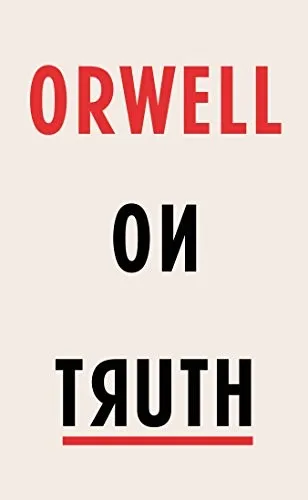A selection of George Orwell's prescient, clear-eyed and stimulating writing on the subjects of truth and lies. With an introduction by Alan Johnson. 'Freedom is the freedom to say that two plus two equals four. If that is granted, all else follows.' This selection of George Orwell’s writing, from both his novels and non-fiction, gathers together his thoughts on the subject of truth. It ranges from discussion of personal honesty and morality, to freedom of speech and political propaganda. Orwell’s unique clarity of thought and illuminating scepticism provide the perfect defence against our post-truth world of fake news and confusion. 'The further a society drifts from the truth, the more it will hate those that speak it.' Includes an introduction by Alan Johnson and passages from Burmese Days, The Road to Wigan Pier, Coming Up for Air, The Lion and the Unicorn, Animal Farm, Nineteen Eighty-Four, Orwell’s letters, war-time diary, criticism and essays including ‘Fascism and Democracy’, ‘Culture and Democracy’, ‘Looking Back on the Spanish War’, ‘As I Please’, ‘Notes on Nationalism’, ‘The Prevention of Literature’, ‘Politics and the English Language’ and ‘Why I Write’.
George Orwell
George Orwell, born Eric Arthur Blair in 1903, was an English novelist, essayist, journalist, and critic. He is best known for his works "Animal Farm" and "Nineteen Eighty-Four," which are both powerful critiques of totalitarianism and authoritarianism. Orwell's writing style is characterized by clarity, precision, and a sharp wit, making his works accessible and thought-provoking for readers.
Orwell's contributions to literature include his exploration of political and social issues, as well as his commitment to truth and honesty in writing. His works have had a lasting impact on the dystopian and political fiction genres, influencing countless authors and thinkers. "Nineteen Eighty-Four" in particular has become a classic of modern literature, with its portrayal of a bleak and oppressive future society resonating with readers around the world. Orwell's legacy as a writer and social critic continues to be celebrated and studied today for its enduring relevance and insight.

